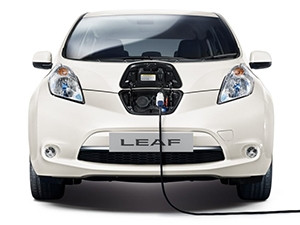
Nissan, in partnership with the uYilo e-Mobility programme, is set to demonstrate its technology that allows power stored in electric vehicles to be used in a range of home and commercial applications.
The Nissan Leaf - the only commercial electric vehicle used for bi-directional energy transfer capability - is being used in a uYilo field test programme to demonstrate and develop Nissan's charger technology in SA.
Once implemented, it will allow Leaf owners to utilise the vehicle's battery capacity in a variety of ways, in addition to driving.
Comprising vehicle-to-grid (V2G), vehicle-to-home (V2H) and vehicle-to-load (V2L) systems, the technology allows use of the Nissan Leaf's battery not only for mobility, but for multiple energy storage uses and applications.
In 2013, the Nissan Leaf went on sale at a retail price of R446 000. Including electricity costs of about R22 500 over a six-year period and maintenance costs of R1 500, the total cost of the car over the six-year period is R470 000.
"The technology is part of Nissan's global Intelligent Mobility vision, demonstrating how we can integrate zero emissions driving with efficient renewable energy systems for domestic and commercial use," says Nissan SA MD Mike Whitfield.
The ground-breaking technology was first rolled out in Japan in 2012 when Nissan launched the 'Leaf to home' power supply system. The system transfers the energy stored in the Leaf's battery to a dedicated V2H station, providing power for household needs.
The technology has been further developed to deliver V2G, allowing energy in the battery to be traded with municipal and energy utilities to increase capacity, while also providing the opportunity to stabilise the grid during peak electricity usage.
Heading the technology localisation programme is Hiten Parmar, director of the uYilo e-Mobility Programme hosted by Port Elizabeth's Nelson Mandela Metropolitan University engineering innovation hub, eNtsa.
"While the electric vehicle supply equipment for this technology is being introduced gradually globally, we have the opportunity to leverage insight in SA, where we aim to enable and facilitate development of these value-add products at a lower cost locally," says Parmar.
"Localising the bi-directional battery technology will have enormous benefits for South African Leaf owners, our auto and energy industries, and the economy as a whole," says Whitfield.
uYilo - bringing together government entities and industries, alongside car manufacturing stakeholders - is tasked with fast-tracking the development and commercialisation of key technologies that will support the electric vehicle industry.
Since the establishment of uYilo as the national e-mobility programme in 2013 by the Technology Innovation Agency, the Nissan Leaf has been used in various field tests.
A 2015 study, for example, found that running an all-electric Leaf for a year costs R18 000 less than a petrol car, based on the average South African annual mileage of 30 000km, says Nissan.
"The agreement with Nissan SA and uYilo extends beyond the Leaf being utilised for field testing and creating awareness," explains Parmar. "It also provides the opportunity for local value-add product and services trials, while also facilitating their development."
uYilo initiated the technology localisation study after receiving support from Nissan in Japan to explore local development of the bi-directional technology. This follows acquisition of the necessary specifications by Nissan's quick-charge partner CHAdeMO.
While the timing for full implementation of the hardware for local product development is yet to be confirmed, uYilo aims to unveil an initial demonstration and testing within the next six months.
uYilo is also engaging with Nissan and other global developers and product distributors of a vehicle-to-everything system that could eventually be integrated into SA's greater ecosystem.
Share